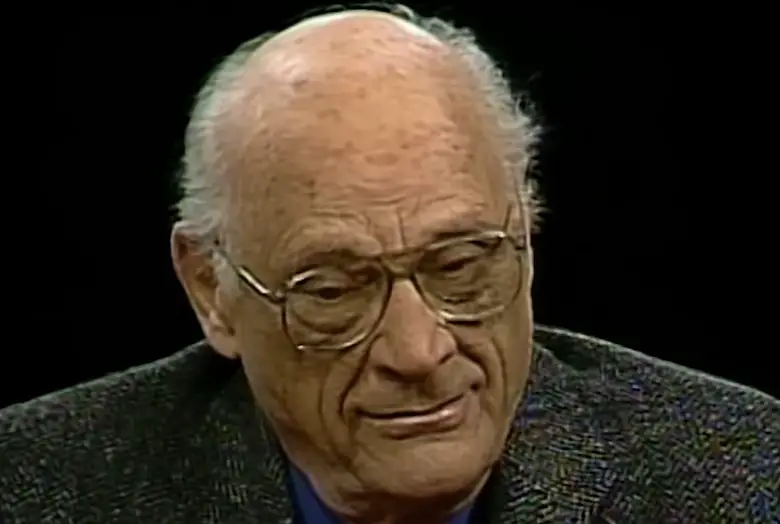Arthur Miller, the literary giant who penned timeless classics like “Death of a Salesman” and “The Crucible,” wasn’t just a playwright. He was a champion of free speech, a relentless critic of societal injustices, and a man who dared to stand tall against the chilling winds of McCarthyism. This defiance landed him squarely on the infamous Hollywood blacklist, a dark period in American history that silenced countless voices in the name of political fear. But why, of all people, was Arthur Miller blacklisted?
The answer lies in a potent mix of Cold War anxieties, artistic integrity, and Miller’s unwavering commitment to intellectual freedom. The year was 1947. The specter of communism loomed large over the United States, fueled by real Soviet espionage and anxieties of ideological infiltration. Enter the House Un-American Activities Committee (HUAC), a Congressional committee tasked with investigating suspected communist activity in Hollywood.
Specific Reasons Why Was Arthur Miller Blacklisted
Arthur Miller was blacklisted for a number of reasons, including:
Refusal to Name Names
The primary reason for Miller’s blacklisting was his defiant refusal to cooperate with HUAC. When questioned about alleged communists he might know, he consistently cited concerns about violating people’s privacy and perpetuating a climate of fear. This principled stand, while admirable, was interpreted as obstructionism and defiance.
Association with Leftist Causes
While not a card-carrying communist, Miller had openly associated with leftist intellectuals and organizations, including attending a World Peace Congress in Prague, a common target of HUAC suspicion. These associations, though innocuous in themselves, fueled the committee’s suspicions and cast a shadow over his political leanings.
Plays with “Subversive” Themes
Miller’s works, particularly “All My Sons” and “The Crucible,” tackled themes of social injustice, class conflict, and individual responsibility. These themes, though not explicitly pro-communist, resonated with leftist critiques of American capitalism and social hierarchies. HUAC saw these elements as subversive and potentially influencing audiences towards communist sympathies.
Public Criticism of HUAC
Miller never shied away from publicly criticizing HUAC’s methods, calling them unfair and un-American. He compared the committee’s tactics to witch hunts and McCarthyism itself, further cementing his image as a thorn in the side of the establishment.
The Cold War Climate
The intense anti-communist atmosphere of the Cold War era played a significant role in Miller’s blacklisting. HUAC operated with immense public and political support, making dissenters like Miller easy targets. The fear of Soviet infiltration created a climate where questioning authority, even on matters of due process, was seen as tantamount to betrayal.
The Impact of the Blacklist
The blacklist had a devastating impact on the lives and careers of many people in the entertainment industry. It led to the loss of jobs, the destruction of careers, and the silencing of voices.
The blacklist also had a chilling effect on the creative process. Many writers and artists were afraid to express their true thoughts and feelings for fear of being blacklisted. This led to a decline in the quality of art and literature during the McCarthy era.
The blacklist finally came to an end in the late 1950s. However, its legacy continues to be felt today. It is a reminder of the dangers of political repression and the importance of freedom of expression.
The Legacy of Arthur Miller
Arthur Miller was a complex and controversial figure. He was a brilliant playwright, but he was also a man who was willing to stand up for his beliefs, even when it was dangerous to do so.
The blacklisting of Arthur Miller was a dark chapter in American history. However, Miller’s story is also a story of hope. He was able to overcome the blacklist and continue to write plays that challenged and inspired audiences.
Miller’s legacy is one of courage and integrity. He showed that it is possible to stand up for what you believe in, even in the face of adversity. His work continues to be relevant today, and it reminds us of the importance of freedom of expression.
Why Was Arthur Miller Important?

Arthur Miller’s importance transcends the confines of American theater. He was a multifaceted figure who left an indelible mark on literature, social discourse, and the fight for artistic freedom. Here’s a closer look at why he continues to be remembered and celebrated:
1. A Literary Master:
Miller’s mastery of language and his profound understanding of human nature are evident in his plays. Works like “Death of a Salesman” and “All My Sons” are not just gripping dramas; they are intricate tapestries of emotions, exploring themes of disillusionment, betrayal, and the pursuit of the American Dream. His characters, flawed and relatable, grapple with universal struggles that resonate deeply with audiences across generations and cultures.
2. A Social Critic:
Miller never shied away from tackling the social and political issues of his time. His plays challenged societal norms, questioned the American Dream’s darker side, and exposed the dangers of conformity and hypocrisy. “The Crucible,” set in the Salem witch trials, serves as a powerful allegory for McCarthyism and the perils of mass hysteria. He used his platform to spark vital conversations and encourage critical thinking about social structures and individual responsibility.
3. A Champion of Free Speech:
Miller’s defiant stand against the Hollywood blacklist solidified his image as a staunch defender of artistic freedom. His refusal to be complicit in HUAC’s tactics set a crucial precedent for other artists and intellectuals, reminding the world that dissent and independent thought are essential pillars of a functioning democracy.
4. A Bridge Between Cultures:
Miller’s works have transcended national borders and resonated with audiences worldwide. His exploration of universal themes like betrayal, grief, and the struggle for meaning in life finds echoes in diverse cultures and languages. His plays continue to be translated, performed, and analyzed across the globe, fostering cross-cultural understanding and dialogue.
5. A Timeless Legacy:
Miller’s influence extends far beyond the stage. His works have been adapted into films and television series, his essays and letters provide valuable insights into his creative process and worldviews, and his activism continues to inspire artists and advocates fighting for social justice and freedom of expression.
Conclusion
Arthur Miller, one of America’s most celebrated playwrights, was blacklisted in the 1950s for his refusal to give evidence against his friend and fellow writer, Dashiell Hammett. The blacklist meant that Miller was unable to get his work published or produced in the US, and he was forced to earn a living by writing for foreign markets. In 1956, Miller finally broke the blacklist when he agreed to testify before the House Un-American Activities Committee (HUAC).
However, instead of naming names, Miller used his testimony to denounce the committee’s methods.
You May Also Like:


